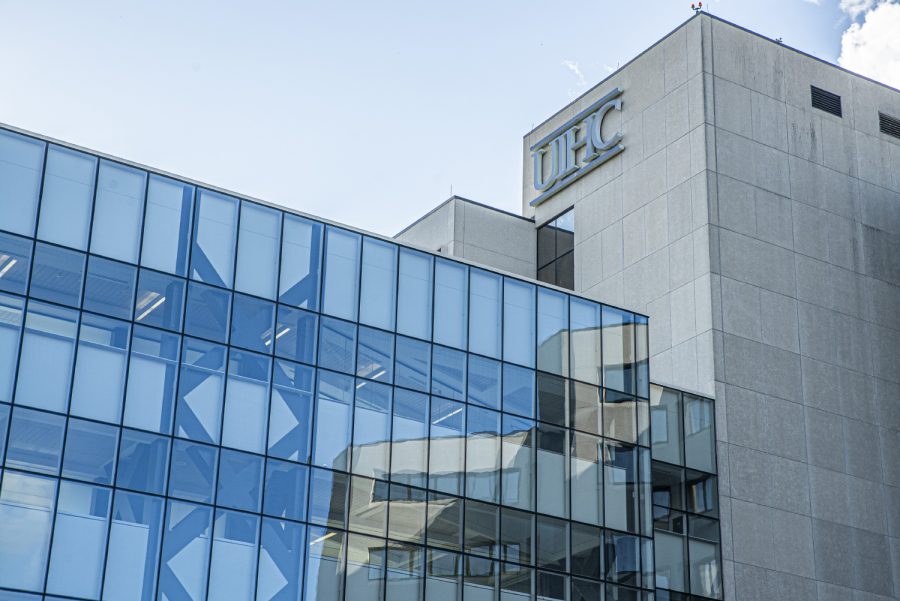UIHC Respiratory Illness Follow-Up Clinic helps patients with ongoing effects of COVID-19
The first and only COVID-19 long-term study clinic in Iowa offers relief to patients after the initial disease has passed.
University of Iowa Hospitals and Clinics are seen on Tuesday, June 23, 2020.
September 16, 2020
The University of Iowa Respiratory Illness Follow-Up Clinic, the only COVID-19 follow-up clinic currently in Iowa, is seeking to help patients struggling with lingering effects of COVID-19 and study the long-term consequences of the virus.
Set up through the UI Hospitals and Clinics, people who have had COVID-19 and are clear of the virus for four weeks or more are eligible to become a patient. The clinic was started by UI Professors of Internal Medicine Alejandro Comellas and Joseph Zabner.
“We established the Respiratory Illness Follow-Up Clinic in June,” Comellas wrote in an email to The Daily Iowan. “It was the first such clinic in the state, and one of the first in the country, to provide dedicated care for patients dealing with long-term health complications from COVID-19.”
Assistant Professor of Internal Medicine Alejandro Pezzulo said he researches pulmonary diseases, including COVID-19, and treats patients from anywhere in their 20s to their 60s, with devastating effects for the virus present even in younger, healthier people.
“I have some cases where I saw someone that was in their 40s, super healthy and a trucker that used to work every single day very hard and is completely unable to keep doing his work due to this disease,” Pezzulo said. “This is still two to three months after the initial disease.”
Pezzulo said he combines his patient care with research, an effect that he attributes to the university. He said he loves to get to know about his patient’s lives and understand how the disease has affected them personally, while still being able to provide clinical care.
He added that there is not always a way to help someone with the impact of the disease at our current level of understanding.
“Despite all the resources and how quickly the science is advancing, sometimes we’re still unable to help, and it really is heartbreaking to see the impact of this disease in some of our patients,” Pezzulo said. “Particularly when we don’t have something to help them get better immediately.”
RELATED: Researchers use chatbots to deliver psychotherapy to help decrease opioid use
UI Clinical Assistant Professor in the Pulmonary and Critical Care Department Raul Villacreses, who has been at the UI since 2012, said he works in the intensive care unit at his clinic in Muscatine in addition to working at the follow-up clinic.
Villacreses said he was in Ecuador visiting his parents when the pandemic worsened, and he decided to change his flight and come back early to the U.S.
“I had the feeling that I needed to be back where I’m the physician really,” Villacreses said.
Working with COVID-19 patients in the intensive care unit, Villacreses said he saw more Spanish-speaking patients than usual, a disproportionate number noticed by his colleague Pezzulo, as well. Villacreses said he later made an offer to Comellas to work with outpatients.
So far, the clinic has not seen many patients, Villacreses said, but he sees the number of people slowly starting to change.
“My favorite part of the job, of course, is to be able to help,” Villacreses said. “I mean, that’s the most important one. I always go with the idea of trying to provide insurance to our patients to try to do as best as we can as I mentioned to provide care and try to make them have a better quality of life.”






